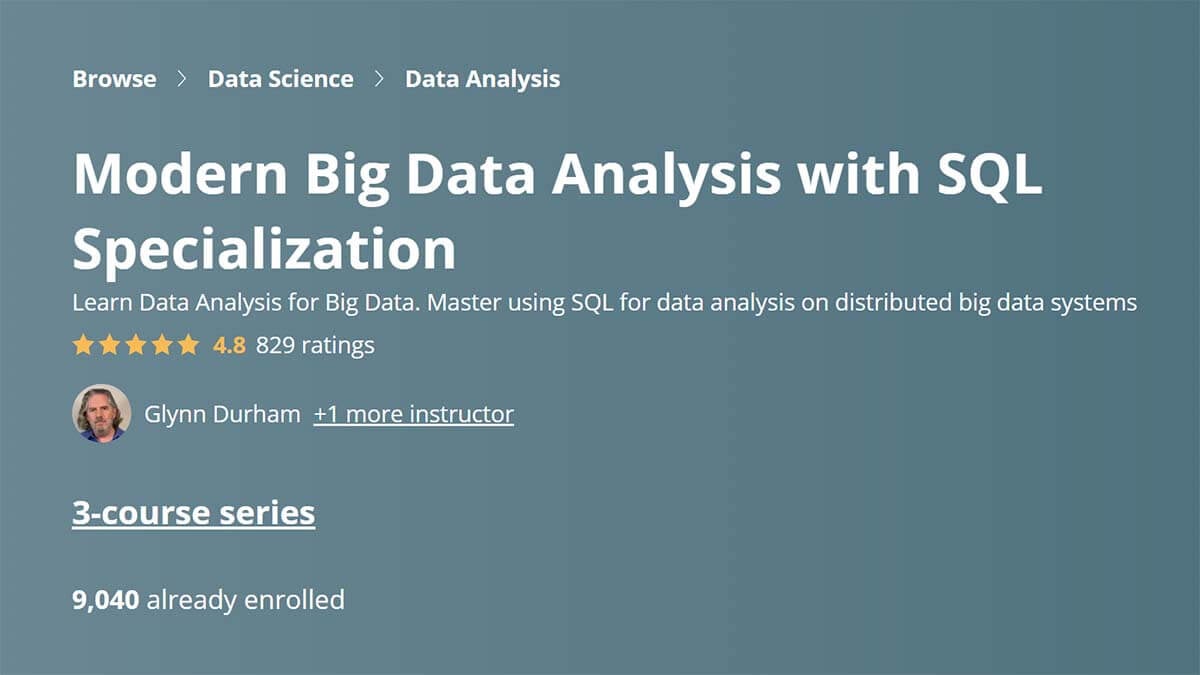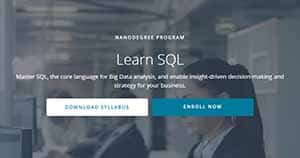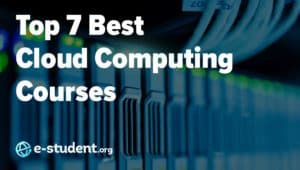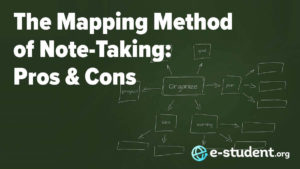So, you’ve decided that you want to become a data analyst or data scientist. Your next question might be: what skills do I need to get hired? Forget machine learning, Microsoft Excel, and R — at least for the time being. The easiest and most valuable skill that you can learn right now is Structured Query Language, better known as SQL (pronounced as “sequel.”)
Invented by IBM researchers in the 1970s, SQL is the standard language for Relational Database Management Systems (RDBMS), which is where most companies store their data.
With SQL, you can compile and manage data in large volumes (we’re talking billions of cells of data), which means that the days when your Excel would crash because you had a ton of rows in a spreadsheet are long over.
Not convinced yet? SQL is the most commonly used language in the data science industry. SQL is also one of the most in-demand tech skills at the moment and is a basic requirement for most data science jobs. According to Data Quest, SQL appears in the majority of ads for data analysts, three times more often than Python or R. It’s no surprise, then, that an average data scientist with SQL skills makes almost $90,000 a year.
If it’s so in demand, learning SQL must be incredibly difficult and time-consuming, right? Wrong! With the right course to guide you, learning SQL couldn’t be simpler. Below we have rounded up seven of the best SQL courses out there.
These are our picks for the best SQL course.
Best SQL Courses
Best Overall: Learn SQL Nanodegree (Udacity)

- Gain a deep understanding of the SQL syntax
- No prerequisite knowledge needed
- Real-world student projects that you can add to your portfolio
- Subscription includes career support services
Cons
- Not a crash course – requires considerable time commitment
We ranked Udacity’s “Learn SQL Nanodegree” as the top-rated online SQL course for many reasons. For one, as with all Nanodegrees offered by Udacity, the price includes 1-on-1 mentorship, career services, and multiple student projects. Thus, it’s effective for people hoping to redirect their careers towards database management and data analytics using SQL.
But, even more than these features, we liked the syllabus for its conciseness. The lessons in this program don’t waste any time giving broad, boring statements such as “big data is the future,” and instead the syllabus jumps right into the action: using SQL commands to accomplish real-world tasks such as joining tables, aggregating data, and cleaning up datasets.
The content of this course is excellent for people new to SQL, and the program does not require any prerequisite programming knowledge.
Here’s what you can expect to achieve by the end of the 2-month curriculum:
- Learn all the core SQL commands, functions, and data cleaning methodologies
- Understand SQL concepts like JOINs, aggregates, and creating temporary variables to give more meaning to the problem you are solving.
- Gain deep knowledge of the SQL syntax and popular APIs for data analysis.
- Learn how to design, build, optimize and debug both relational and non-relational databases.
- Determine, create, and execute SQL and NoSQL queries that manipulate and dissect large-scale datasets.
If you’re looking for an SQL class that’ll take you from “zero to hero,” this is what you’re looking for. Udacity’s “Learn SQL Nanodegree” is the best of its kind and easily deserves the title of the absolute best online SQL class.
Best for Distributed Systems: Modern Big Data Analysis with SQL Specialization (Coursera x Cloudera)

40% ($140 USD) off your first year of Coursera Plus Annual (expires 2 December 2024)
- Focus on distributed query engines
- No prerequisites
- 3 hands-on, peer-graded assignments
- Audit course material for free
Cons
- No capstone project
Created by the software company Cloudera in partnership with Coursera, the “Modern Big Data Analysis with SQL Specialization” is a three-course program that promises to teach you everything you need to know to work with data using SQL. While this Specialization shows you how to use relational database management systems (RDBMS), such as MySQL, its main focus is on distributed query engines, like Hive and Impala.
The curriculum consists of SQL tutorials in the form of video lessons as well as readings and discussion prompts. At the end of each week, your knowledge is tested via an auto-graded quiz. Each course also includes a practical, peer-graded assignment. For example, at the end of the second course, students have to query and analyze flight data to help a company make a better business decision.
There’s no capstone project at the end of the program. Instead, you complete all three peer-graded assignments to earn course certification.
No prior experience is required to enroll in this SQL training program, which makes it suitable for total beginners. Students can expect to finish this Specialization in about four months, provided that they dedicate about three hours a week to it. Not sure if this Specialization is for you? You can audit course content for free (but you won’t get a certificate unless you enroll in the program).
Crafted by Coursera and taught by Cloudera’s own instructors, the Modern Big Data Analysis with SQL Specialization is the best course for learning SQL. As a bonus, those that get to the end of this SQL training program should be well able to pass the Cloudera Certified Associate (CCA) certification exam (should they choose to take it).
Best for Beginners: SQL Fundamentals (DataCamp)

50% off Unlimited Data and AI Learning (expires 28 March 2024)
- No prior experience required
- Over 200 hands-on exercises
- First chapter of every course is free
- Complete in 21 hours
Cons
- Exercises could be more challenging
DataCamp’s “SQL Fundamentals” is a “skill track” designed to make you proficient in SQL in just 21 hours. The track is divided into five courses: Introduction to SQL, Joining Data In SQL, Intermediate SQL, PostgreSQL Summary Stats and Window Functions, and Functions for Manipulating Data In PostgreSQL.
The courses are taught through 54 short video lessons and 243 hands-on exercises that are accessible from your browser.
Note that with DataCamp, you don’t have to write code yourself. Rather, you fill in blank spaces. Moreover, you’re given most of the strings and instructions telling you what each line of your code should do. You can also ask for a hint or choose to reveal the correct answer. This makes learning SQL super easy. On the other hand, the track might not be challenging enough if you’re an advanced student.
You don’t need to have any experience with data visualization or SQL to take this skill track. Even better, the first chapter of every course is available for free, so you can try this track risk-free before you commit to it.
Learn how to select columns, aggregate functions, and group and join tables (among other things) with DataCamp’s SQL Fundamentals skill track, one of the best SQL online courses for beginners.
SQL Server Developer (DataCamp)

50% off Unlimited Data and AI Learning (expires 28 March 2024)
- More than 500 exercises
- No prerequisites
- First chapter of every course free
Cons
- Time intensive
On average, data analysts with Microsoft SQL Server skills earn $60,000 annually. The “SQL Server Developer” career track is meant for those aiming for a career as a SQL Server database administrator, developer, or system engineer.
The track is split into 10 courses that cover writing queries and functions and managing transactions. The material is taught via slideshow-like video lessons and bite-sized exercises. There are over 500 auto-graded exercises, so you’re guaranteed to get plenty of SQL practice.
As the track progresses, the curriculum gets increasingly difficult — so if you’re new to SQL servers, don’t skip the first few courses. That said, you don’t need any previous experience to get started with this track, either. Students can get through most courses in around four to five hours. The entire course takes about 45 hours to complete.
Although the first chapter of each course is free, you’ll need to purchase a DataCamp subscription if you want to take this track from start to finish.
The “SQL Server Developer” career track is one of the best SQL online classes for reigniting your career.
The Complete SQL Bootcamp 2022: Go from Zero to Hero (Udemy)

New customer offer! Top courses from $14.99 when you first visit Udemy (expires 31 March 2024).
- No technical knowledge required
- A ton of quizzes and assessments
- Taught by a highly-esteemed instructor
- Shareable certificate
Cons
- Could do with more practical exercises
Great for beginners, “The Complete SQL Bootcamp: Go From Zero to Hero” covers PostgreSQL and PgAdmin. However, you can apply the skills you learn in this program to most SQL databases, such as MySQL, Oracle, Microsoft SQL Server, and Amazon Redshift.
The program consists of 12 sections that teach you vital information like the fundamentals of SQL syntax and analyzing data with aggregate functions. Every section includes several challenges and 3 out of the 12 sections are dedicated entirely to assessments. In total, the program comes with 9 hours of on-demand SQL tutorials, 15 articles, and 10 downloadable resources.
The curriculum is taught by Jose Portilla, Head of Data Science at Pierian Data Inc., a training company that delivers in-person data science and data analysis training courses to Fortune 500 companies’ employees. Portilla is very well regarded as a data science teacher — a few people on Reddit have even said that at this stage, they’re down to buy anything that Portilla makes. Now that’s quite a compliment.
Another one of the best SQL courses out there, The Complete SQL Bootcamp 2020: Go From Zero to Hero features a superb teacher who does a great job explaining every topic needed to start working with relational databases — with no prior technical knowledge necessary!
SQL & Database Design A - Z: Learn MS SQL Server + PostgreSQL (Udemy)

New customer offer! Top courses from $14.99 when you first visit Udemy (expires 31 March 2024).
- No prerequisites
- Clear explanations
- Frequent discounts
Cons
- Low audio levels
- Some courses are a bit repetitive
Udemy’s “SQL & Database Design A – Z: Learn MS SQL Server + PostgreSQL” is made up of 10 sections and 104 lectures, split into 12.5 hours of SQL tutorial videos and 5 articles.
The program starts by showing you how to install PostgreSQL and PgAdmin as well as MS SQL Server. Once you get to grips with the two most popular database management systems, you’re ready to learn the basics of using SQL, how to work with data, fundamentals of database theory, how to join tables in SQL, and how to create tables in SQL. The final section of the program is devoted to database design.
Because the most important concepts are explained in a clear manner, the course is easy to follow. All practical topics are repeated twice — once for MS SQL Server and once for PostgreSQL. As such, this program is perfect for people who know nothing or very little about SQL. Otherwise, the SQL tutorials might get a bit tedious.
All things considered, this course is one of the best SQL online courses on the market. It teaches you not only PostgreSQL but also MS SQL Server and database design. Plus, it comes with full lifetime access (including updates), access on mobile and TV, and a certificate of completion. Not bad considering that you can get this program for just over $100 (or less if you happen to buy it on a day when Udemy is running discounts).
Excel to MySQL: Analytics Techniques for Business Specialization (Coursera x Duke University)

40% ($140 USD) off your first year of Coursera Plus Annual (expires 2 December 2024)
- No prior experience necessary
- Created by the prestigious Duke University
- Includes capstone project
- Chance to present work to Airbnb’s data scientists
Cons
- Long and time-intensive course
Offered by Duke University and available on Coursera, the “Excel to MySQL: Analytics Techniques for Business Specialization” will teach you how to interpret and present data using some of the most powerful business intelligence tools.
The program is divided into five courses. The first course explains best practices for using data analytics to make a business more competitive. Course two, three, and five focus on Excel, Tableau, and MySQL, respectively. The final — fifth — course is actually not a course at all, but rather a capstone project. The really cool thing about this project is that every year, 10 students are chosen to present their work to Airbnb’s senior data scientists for feedback.
Students learn through video lessons and complementary readings. Moreover, every week ends with a quiz and every course has a peer-graded assignment. For example, at the end of course two, you’re asked to design a predictive model that would help a bank approve or reject people applying for a credit card.
In total, the course takes about 114 hours to complete. If you spend four hours a week on this course, you can expect to finish it in about seven months. You don’t need any prior experience with analytics or programming to enroll in this course. However, you do need access to Microsoft Excel 2007 (or a more recent version).
For superb SQL training, look no further than the Excel to MySQL: Analytics Techniques for Business Specialization. This data science course will teach you the SQL skills needed to become a highly valued business analyst.
FAQs
⏳ How long does it take to learn SQL?
Since SQL is pretty easy to learn, most people can become functional with the language in just a few weeks. That being said, the exact time frame depends on how you’re learning it and the amount of time you dedicate to it each day.
💢 Is SQL hard to learn?
It’s easy to learn the basics of SQL. That’s because, with SQL, you’re not telling the computer HOW to do a specific task. Instead, you’re telling the computer WHAT you want — and letting it figure out the rest.
🙋♂️ Can I learn SQL on my own?
There are plenty of resources for learning SQL on your own. However, if you want to save time, you’re better off investing in a high-quality SQL course that’ll teach you the basics. After that, it’s all down to practice.



